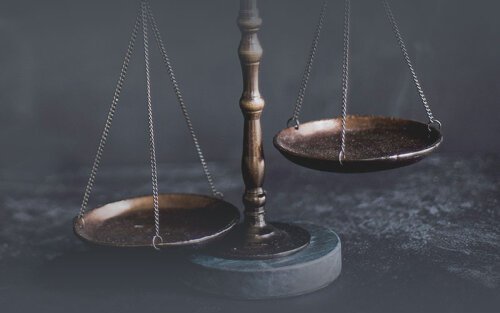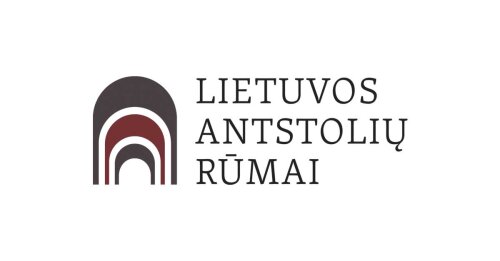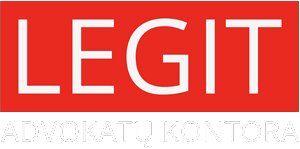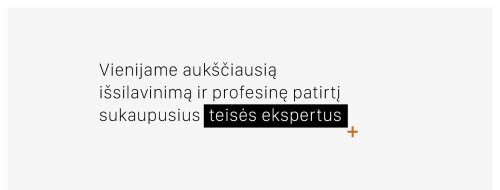Best Creditor Lawyers in Republic of Lithuania
Share your needs with us, get contacted by law firms.
Free. Takes 2 min.
Or refine your search by selecting a city:
List of the best lawyers in Republic of Lithuania
About Creditor Law in Republic of Lithuania
Creditor law in the Republic of Lithuania governs the rights and responsibilities of individuals or entities who are owed money by debtors. It covers issues such as debt collection, enforcement of court judgments, and protection of creditors' interests.
Why You May Need a Lawyer
You may need a lawyer in the field of creditor law if you are facing difficulties in collecting debts, need legal assistance in negotiating payment plans or settlements with debtors, or require representation in court proceedings related to debt collection.
Local Laws Overview
In Lithuania, creditor rights are primarily regulated by the Civil Code and the Law on Insolvency of Legal Entities. These laws establish the procedures for debt collection, enforcement of court decisions, and the rights of creditors in insolvency proceedings.
Frequently Asked Questions
What are the legal requirements for issuing a payment demand to a debtor?
In Lithuania, a payment demand should include details of the debt, the legal basis for the claim, and a deadline for payment. It is advisable to send the demand in writing and keep proof of delivery.
Can a creditor seize a debtor's assets to satisfy a debt?
Yes, a creditor can apply to court for an enforcement order to seize a debtor's assets or earnings to satisfy a debt. However, the seizure of assets must comply with the legal procedures and limitations set by law.
What are the consequences of non-payment by a debtor?
If a debtor fails to pay a debt, a creditor may initiate legal action to enforce the debt, such as applying for a court judgment, seizing assets, or declaring the debtor insolvent. The specific consequences depend on the circumstances of the case.
How can a creditor protect their rights in insolvency proceedings?
In insolvency proceedings, creditors must file their claims with the insolvency administrator and participate in creditors' meetings to protect their rights. Creditors may also challenge decisions that harm their interests during the insolvency process.
Is it possible to negotiate a debt settlement with a debtor without legal action?
Yes, creditors and debtors can negotiate debt settlements outside of court proceedings. It is advisable to seek legal advice when negotiating settlements to ensure that the terms are legally binding and enforceable.
What are the time limits for enforcing debts in Lithuania?
The time limits for enforcing debts in Lithuania depend on the type of debt and the legal basis for the claim. For example, the general statute of limitations for debt collection is usually three years from the date the debt became due.
Can a creditor challenge a debtor's bankruptcy petition?
Yes, a creditor can challenge a debtor's bankruptcy petition if they believe that the debtor is not genuinely insolvent or if the petition is filed to avoid paying debts. The court will assess the validity of the petition based on the evidence presented.
What are the legal remedies available to creditors in case of debtor fraud?
If a debtor engages in fraudulent activities to avoid paying debts, creditors can take legal action against the debtor for fraud. Remedies may include seeking damages, invalidating transactions, or pursuing criminal charges against the debtor.
Are there any restrictions on debt collection practices in Lithuania?
Yes, debt collection practices in Lithuania are regulated by consumer protection laws and must comply with the principles of fairness and good faith. Creditors are prohibited from using harassment, coercion, or deceptive tactics in debt collection.
How can a creditor verify a debtor's assets before initiating legal action?
Creditors can request information about a debtor's assets through various means, such as asset searches, public registries, or court orders. It is essential to gather evidence of the debtor's financial situation before taking legal action to enforce a debt.
Additional Resources
For more information on creditor rights and debt collection practices in Lithuania, you can contact the Lithuanian Chamber of Judicial Officers or the Ministry of Justice. These organizations provide guidance and support to creditors seeking legal advice.
Next Steps
If you require legal assistance in the field of creditor law in Lithuania, it is advisable to consult with a qualified attorney who specializes in debt collection and insolvency matters. An experienced lawyer can assess your case, advise you on your rights and options, and represent your interests in legal proceedings if necessary.
Lawzana helps you find the best lawyers and law firms in Republic of Lithuania through a curated and pre-screened list of qualified legal professionals. Our platform offers rankings and detailed profiles of attorneys and law firms, allowing you to compare based on practice areas, including Creditor, experience, and client feedback.
Each profile includes a description of the firm's areas of practice, client reviews, team members and partners, year of establishment, spoken languages, office locations, contact information, social media presence, and any published articles or resources. Most firms on our platform speak English and are experienced in both local and international legal matters.
Get a quote from top-rated law firms in Republic of Lithuania — quickly, securely, and without unnecessary hassle.
Disclaimer:
The information provided on this page is for general informational purposes only and does not constitute legal advice. While we strive to ensure the accuracy and relevance of the content, legal information may change over time, and interpretations of the law can vary. You should always consult with a qualified legal professional for advice specific to your situation.
We disclaim all liability for actions taken or not taken based on the content of this page. If you believe any information is incorrect or outdated, please contact us, and we will review and update it where appropriate.
Browse creditor law firms by city in Republic of Lithuania
Refine your search by selecting a city.















